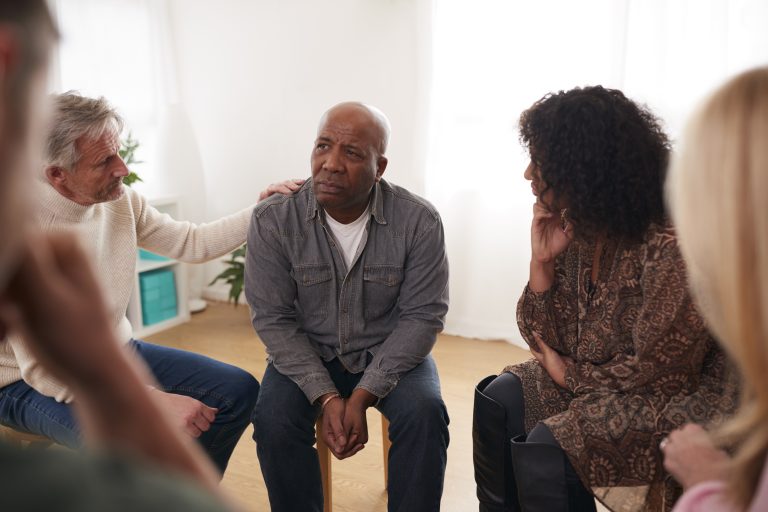What is Prostate Cancer?
Prostate cancer is a disease of the prostate gland and generally affects men over the age of 50. In fact, it has become the most common cancer in men, with over 40,000 new cases detected each year. The good news is that greater awareness of potential prostate health problems can lead to better treatment outcomes.
Where is the Prostate?
The prostate gland, found only in men, is about the size of a walnut. It fits snugly in the pelvis right under the bladder and surrounds the tube (the urethra) that the urine passes through. Sometimes it can affect the way he urinates.
What does the Prostate do?
Situated virtually at the central hub of a man’s urinary and reproductive tracts the prostate is responsible for production and ejaculation of semen.
Is your partner good at staying healthy?
Like most men he will only visit his GP as a last resort. Probably he treats his body like his car and only seeks attention when it breaks down! Whether a partner, daughter, mother or just a friend, you’ll appreciate how difficult it can be to persuade a man to go for a health check up. But as he becomes older it becomes even more necessary. With your help, any signs of prostate problems can be detected as soon as possible, which greatly improves the chances of successful diagnosis and treatment.
What are the symptoms of Prostate Cancer?
As men get older, they become more prone to developing an enlarged prostate. This can cause a variety of urinary problems. Many of the symptoms of prostatic diseases, cancerous and benign, overlap. Although it is likely that men with early prostate cancer will have no symptoms, if your man has experienced any of the following problems, he should consult his doctor immediately:
Things to spot:
- Does he sometimes pass urine when he doesn’t expect to?
- Does he pass urine two or more times during the night?
- Is he bursting to go and finds he barely produces a trickle?
- Does he have poor flow, hesitancy a feeling of still wanting to empty after he has finished?
- Does he have any discomfort such as pain or burning sensation when he passes urine?
- Has there ever been blood in his urine?
- Does he experience back pain?
- Does he experience problems with erection?
If any of these sounds familiar don’t delay! Get him to see your GP.
I persuaded him to go to the GP, what next?
A small sample of blood is taken from the man’s arm to check for a substance called Prostate Specific Antigen (PSA), the presence of which in the bloodstream is an indication of prostate disease. If a man is over 50 he has a right to a PSA test. Men with prostate cancer tend to have a higher PSA in their blood, but only one man in five with a raised PSA will have prostate cancer. In addition the GP will give him a digital rectal examination. (DRE). If cancer is suspected it can only be confirmed by examining prostatic tissue under a microscope after a biopsy, or an MRI Scan given before the biopsy is taken, which is becoming increasingly more common.
What are the benefits of regular checks?
Most prostate problems are not cancer. But if cancer does exist, it usually responds well and can be cured if contained within the prostate gland. That’s why it is important that you both become more aware of the health of his prostate and consider regular check-ups particularly:
- If he is over the age of 50
- If prostate cancer or breast cancer is in his immediate family
- If he is black
Today, prostate cancer is easier to detect and treat, but the earlier your man comes forward the better. So help him to take charge of his health and book an appointment with his GP.
What are the other Prostate diseases?
There are two other common prostate diseases both benign and with similar symptoms to prostate cancer:
Prostatitis
An inflammation of the prostate gland. It can affect men of any age.
Benign Prostatic Hyperplasia (BPH)
This is the most common prostate disease and is more likely to affect men over 50. It can lead to Acute Urinary Retention, where the man is unable to urinate.There are a variety of medications and procedures to treat BPH.
How do you persuade your man to talk to his doctor about prostate health?
You know him best, and you can probably think of the best way to gently twist his arm especially when it’s a subject that he may be too embarrassed to mention to you. But if you need a few tips here are some ideas that other women and partners have found useful!
- Leave medical information leaflets lying around where he is likely to find them i.e. in the bathroom or near the remote.
- Use friends experiences as examples of when a trip to the GP resulted in peace of mind or a successful outcome
- Tug at his heart strings i.e.“Do it for me/us/the family”
- Compare it to breast checks. Women are used to going for regular breast check-ups so going for a prostate check can be his equivalent
- Book a double appointment with the GP for a check-up for both of you, and tell him he’s going with you


